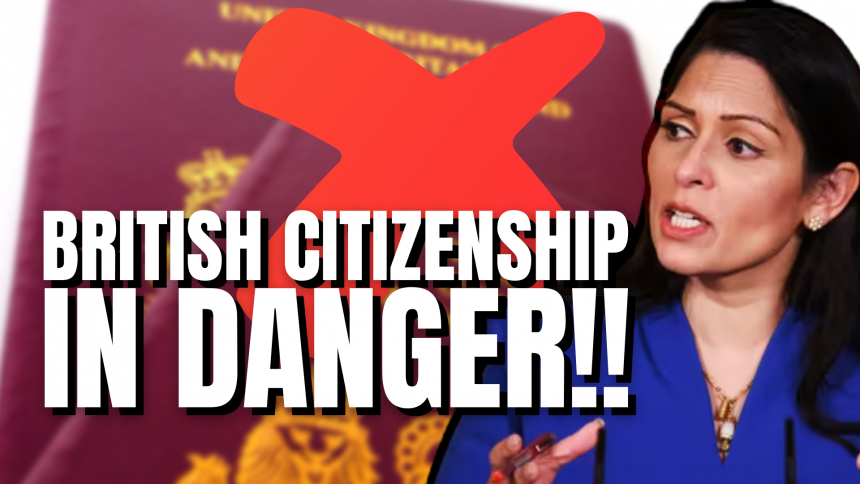Stripping British citizenship: the government’s new bill explained
Please keep in mind that the Nationality and Borders Bill was declared in the House of Commons on 6 July 2021 and has been launched after the government’s New Plan for Immigration.
From 6 December 2021, the Nationality and Borders Bill went back to the House of Commons to be examined and it will go back to the House of Lords on 5 January 2022.
This regulation is mentioned as the UK governments ‘new plan for immigration’. On the other hand, the bill has been seriously disapproved as provocative. It makes modifications to the UK Immigration System relating to asylum seekers and refugees by distinguishing based on method of arrival, besides looking to modify the present system for asylum claims and appeals and neutralising people smuggling and modern slavery.
The UK Home Secretary stated that the new plan will aim to comply the following:
Upsurge the equality and effectiveness of the system so that the UK can better safeguard and back those in legitimate need of asylum;
Discourage illegal entry into the UK, thereby breaking the business model of illegal trafficking networks and safeguarding the lives of those they jeopardize; and
Eliminate more easily from the UK those with no right to be here
On the other hand, the Bill has several rules which are, or are likely to be the following:
Debatably be mismatched with international law; Possibly damage access to justice, and Effect on the role of lawyers in immigration cases
Some of the important fundamentals are as follows:
There is a rule which permits the UK to be able to send asylum seekers to a ‘safe third country’ to submit claims at a place regulated by the UK Secretary of State. It is considered that the Bill gives potential to permit offshore processing centres to be establish overseas similar to guidelines utilized in Australia.
The Bill also provides Border Force powers to turn migrants away from the UK while at sea and makes it a criminal felony to intentionally arrived on the UK without authorizations
The maximum decree for those coming to the UK illegally will rise from 6 months imprisonment to 4 years
.
There are modifications to appeals procedures, including removing stages of appeal or fast-tracking certain cases.
It comprises a plan to strip people of British Citizenship without notification. The existing law previously permits deprivation of citizenship where individuals pose a threat to the UK including radicalism, fraudulent citizenship or war crimes. On the other hand, the modification to the clause eliminates the right to do this without notification.
The authorities the Bill provides are unreasonably broad and has been examined to represent a troubling level of UK government’s outreach at the expense of individual’s right and risks legitimacy, and the rule of law.
Whereas the Bill still has to clear the House of Lords, there is a great concern over the impact of the Bill. For instance, the deprivation of citizenship clause.
Examining this provision in the Commons on 7 December 2021, it was highlighted that individuals outside the UK are allotted 28 days to appeal the deprivation of their citizenship, and demanded the UK government to explain whether this cut-of-date would be prolonged for those who had not been informed inside the 28-day window.
Speaking for the UK government, a Home Office secretary claimed that the right of appeal would remain intact. Ministers of Parliament are demanding greater knowledge of the detail of the legislation before the House of Lords begin their examination of it.


Leave a Reply